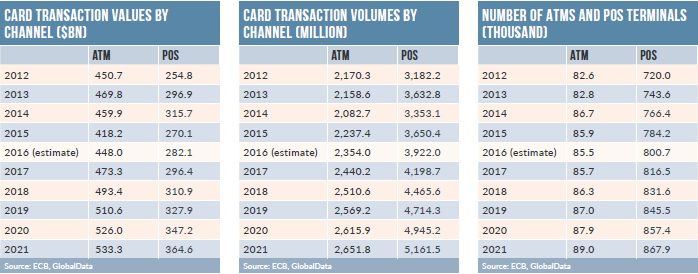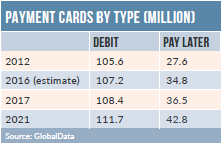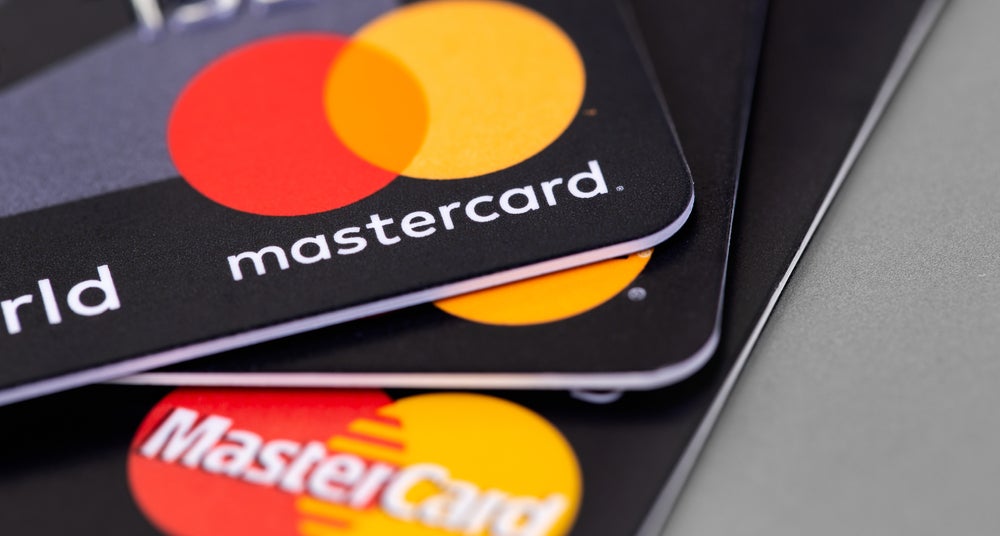Germany is one of Europe’s largest payment cards markets, and is the third largest in terms of annual card transaction value. It is still far from being recognised as fully mature, however.
Despite its large market size, the average number of monthly card transactions in Germany was 2.3 in 2016; much lower than France (10.7), Canada (8.5), and the UK (7.3).
Non-cash payments have grown over the last decade, but consumers in Germany still have a strong inclination towards cash for most transactions. Cards are still predominantly used for ATM withdrawals.
Consumers in Germany use debit cards for most transactions and the national debit card scheme, girocard, is the most frequently used card. Payment guarantees by all participating banks make girocard popular among retailers.

In 2014, girocard’s interchange fees were between 0.2% and 0.3%, less than Visa (1.08%) and Mastercard (1.10%); this allowed the scheme to establish itself as the country’s dominant provider. girocard transactions accounted for 90.4% of all debit card transactions in 2016; its low interchange fee up until a cap implemented by the EU in 2015 gave it an edge over other scheme providers.
How well do you really know your competitors?
Access the most comprehensive Company Profiles on the market, powered by GlobalData. Save hours of research. Gain competitive edge.

Thank you!
Your download email will arrive shortly
Not ready to buy yet? Download a free sample
We are confident about the unique quality of our Company Profiles. However, we want you to make the most beneficial decision for your business, so we offer a free sample that you can download by submitting the below form
By GlobalDataSo far, the new interchange fee rules have had a minimal impact on girocard’s dominance in Germany.
Several banks have introduced contactless debit card payments and are in the process of converting all cards to contactless. In October 2015, a three-month pilot project by girocard was launched in Kassel, Göttingen and Baunatal, during which more than 10,000 transactions were made with over 130,000 cards with contactless and chip-and-PIN functionality.

As a result Volksbanken and Raiffeisenbanken (VR) decided that all newly issued girocards would be contactless-enabled and EMV-compliant as of January 2016, and that from January 2017 all VR cards will be converted to contactless chip-and-PIN cards.
Credit cards occupy a low share of the German payment cards market. As the majority of regular bank accounts have overdraft facilities, the need for short-term credit is low, and consumers tend to use credit cards mainly to benefit from interest-free credit periods – a facility not available with overdrafts.
German banks also follow strict procedures for issuing credit cards in an aim to minimize the risk of payment defaults. Banks typically only offer cards to customers with a good credit histories and high levels of financial stability.
The German credit cards market is affected by the interchange fee cap of 0.3% on credit card transactions. This will result in revenue erosion, and to compensate many banks have increased their annual fees and reduced some of their card benefits. In contrast, a decrease in interchange fee encourages retailers to accept credit card payments.







